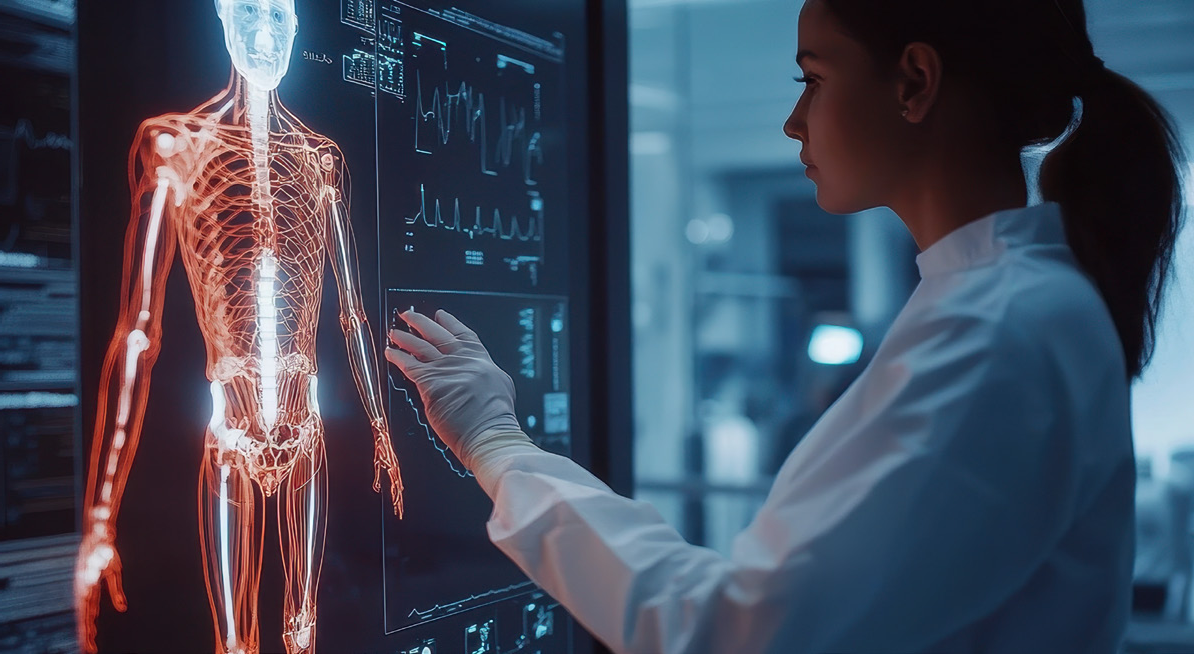
From predictive biomarkers and targeted therapieas to next-gendiagnostics, digital health tools, and AI, biotech innovations are transforming patient care globally.
Biotechnology has gone from treating disease to rewriting the rules of healthcare.
The sector is driving a shift from a reactive model to one that can predict, prevent and personalise care. With breakthroughs in biomarkers, next-gen diagnostics, targeted therapies and digital health tools, medicine is moving upstream: spotting risks earlier, tailoring interventions with precision, and keeping patients continuously monitored.
A shift from reactive to proactive
For much of modern history, healthcare has been reactive. People sought treatment once they became unwell, and medicine was designed to alleviate symptoms or manage established disease.
Today, biotechnology is transforming that approach by making healthcare more predictive, preventive and personalised. Through advances in genomics, molecular biology and digital health, it is now possible to anticipate risks, tailor treatments, and embed prevention into everyday life.
This vision aligns with the “4P” model of medicine (predictive, preventive, personalised, participatory), which holds that medicine “should be proactive, intervening well before the onset of disease”. In practical terms, this means leveraging cutting-edge innovations to anticipate health issues and tailor interventions to the individual before a disease becomes advanced.
Emerging tools are further sharpening this personalised approach. CRISPR-Cas9 gene editing offers the potential to correct pathogenic DNA mutations at the source, hinting at future one-time cures rather than lifelong treatments.
Notable biotech companies are at the forefront of this revolution: for example, Germany's BioNTech and US-based Moderna are trialling mRNA cancer vaccines custom-designed for a patient's tumour mutations, and CAR-T cell therapy developers like Novartis have created personalised immune treatments by engineering a patient's own T-cells to target their cancer.
Advances in biotechnology is transforming the healthcare approach to become more predictive, preventive and personalised.
Predictive biomarkers anticipate disease risk
One of the most powerful ways biotech enables preventive care is through predictive biomarkers. These are measurable biological indicators such as specific genes, proteins or molecules that signal an increased risk of developing a disease or likely response to a particular treatment.
Predictive biomarkers are revolutionising healthcare delivery by enabling proactive intervention strategies, fundamentally changing our approach to disease management.
Wearables and biosensors now provide real-time data on vital signs such as heart rate, oxygen saturation and glucose levels.
Crucially, they allow clinicians to identify at-risk individuals and intervene before clinical symptoms appear. In fact, a key advantage of biomarkers is their ability to detect diseases at very early stages, even pre-symptomatically, which is especially valuable for conditions like neurodegenerative, cardiovascular, or metabolic disorders. By knowing a patient's predisposition, healthcare providers can act proactively.
For example, a person found to carry a high-risk cancer gene (like BRCA mutations) might undertake more frequent screenings or preventive measures long before any cancer develops.
Likewise, elevated biomarker levels (such as certain proteins indicating heart stress) could prompt early lifestyle changes or medications to ward off a cardiac event. Having this information in hand means doctors can implement preventive strategies or start treatments early, significantly improving patient outcomes.
Advances in diagnostics are enabling diseases to be detected earlier often before symptoms arise which is critical for preventive healthcare. One breakthrough is the rise of liquid biopsies: tests that detect disease signals (like circulating tumour DNA) in blood or other body fluids.
The most headline-grabbing example is GRAIL's Galleri multi-cancer early detection test, now being trialled by the UK NHS. This test uses machine learning to analyse methylation patterns in free-floating DNA, and can indicate not only the presence of cancer but also its likely organ origin from a single blood draw.
EU-based companies such as SOPHiA GENETICS are integrating genomics, to uncover early disease markers. These biomarkers can flag risks of cancer, cardiovascular disease, or neurodegenerative disorders long before symptoms manifest, enabling interventions ranging from lifestyle modification to preventive drug therapy.

With AI-enhanced analytics, researchers can identify biomarker patterns across massive datasets, improving both sensitivity and specificity in risk stratification.
Using the power of big data
Notably, the rise of big data and artificial intelligence is amplifying the power of predictive biomarkers. Advanced AI algorithms can sift through complex genetic and clinical data to find subtle patterns that humans might miss.
These tools are increasingly capable of identifying patterns that signal disease onset or progression, enhancing the precision of risk prediction.
For example, AI-driven analyses of health records and genetic markers can predict who is likely to develop conditions like diabetes or Alzheimer's years in advance, so that monitoring or preventive therapies can start early. This synergy of biotech and AI strengthens proactive care by making predictions more accurate and broadly applicable.
AI-driven analyses of health records and genetic markers can predict who is likely to develop conditions like diabetes or Alzheimer's years in advance.
A key complement to biotechnology is digital health.
Wearables and biosensors now provide real-time data on vital signs such as heart rate, oxygen saturation and glucose levels. These tools generate digital biomarkers that can flag early warning signals and trigger timely responses which is what we've seen from Apple's Heart Monitor.
For patients, this means health management is continuous rather than episodic. For biotech innovators, it creates an opportunity to integrate traditional laboratory insights with everyday monitoring, building a comprehensive picture of individual health.
In the US, large radiology providers have begun deploying FDA-cleared AI tools in routine screening, marking one of the first major integrations of AI into standard preventive care. Beyond imaging, AI algorithms applied to electronic health records can flag patients who may benefit from preventive interventions for example, identifying those at high risk of hospitalization in the next year so that care managers can step in with targeted support.
Steering preventive healthcare as policy
As biotechnology ushers in a new era where healthcare is
predictive, preventive, and personalised, the EU is actively shaping it through stringent frameworks like the strengthened In Vitro Diagnostic Regulation (IVDR). At the same time, programs like Horizon Europe's Health Cluster is directing substantial investment toward biotechnologies, AI-enabled diagnostics, and digital health infrastructure that promote proactive care.
By harnessing such policies and regulatory standards as a springboard for innovation, we're starting to see a unified healthcare ecosystem that is smarter, safer, and fundamentally more human-centred.
The end goal is a future where a combination of predictive biomarkers, personalised interventions, and preventive strategies keeps populations healthier and extends lives. With biotech innovators, public initiatives, and regulators increasingly moving in sync, personalised and preventive healthcare is transitioning from futuristic vision to a more common standard of care.







